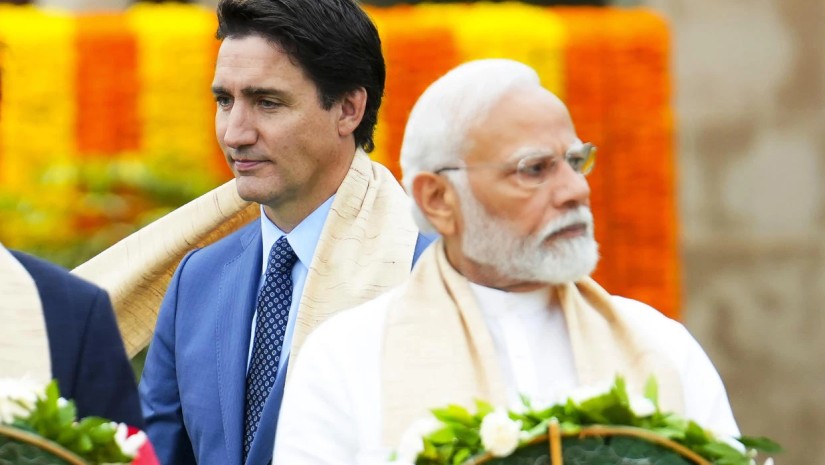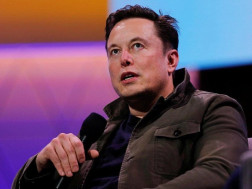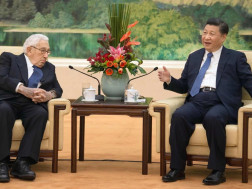Canada says it has intelligence possibly linking Indian government agents to the murder of a separatist Sikh leader, the kind of news that usually sparks uproar among democratic allies. Not this time.
India is being courted by the United States and others as a counterweight to China, and Canadian Prime Minister Justin Trudeau’s rare attack just days after New Delhi hosted a Group of 20 (G20) summit is putting Western nations in an awkward position.
None of Canada’s most important allies – not the US, the United Kingdom, Australia or New Zealand, all knitted tightly together in the “Five Eyes” intelligence-sharing alliance – echoed Trudeau’s allegations.
They have declared their concern and urged full investigations. But none has stepped up to condemn India for its alleged involvement in the June slaying on Canadian soil of Sikh separatist, Hardeep Singh Nijjar.
Why?
Mainly because of China, some experts say, as the priority among the allies to bolster ties with India as a counterweight to Beijing’s rising power and assertiveness.
“India is important in Western calculations for balancing China, and Canada is not,” said Stephanie Carvin, a professor of international relations at Ottawa’s Carleton University.
“This really does put Canada offside among all other Western countries,” she said.
UK in a difficult position
But it is more than that. India has a fast-growing economy that many analysts believe will overtake Japan and Germany to become the world’s third-largest by 2030. It has become a leading power in world affairs, with more than 1.4 billion people and one of the world’s largest militaries.
All that makes it hard for Canada’s main allies – which are also some of India’s main partners – to speak out.
“I think Australia, US and UK did about what was expected,” said Janice Stein, a political scientist at the Munk School of Global Affairs in Toronto.
Sushant Singh, a senior fellow at the New Delhi-based Centre for Policy Research, agreed: “As long as the West needs India to counter China, it is likely to look away.”
On Monday, Trudeau said there were “credible allegations” of Indian involvement in the killing outside Vancouver by masked gunmen of 45-year-old Nijjar, who had been wanted by India for years. Canada and India also expelled diplomats in a tit-for-tat move.
A day later – after India ramped up the confrontation by expelling a top Canadian diplomat – Trudeau toned down the rhetoric, telling reporters that Canada was “not looking to provoke or escalate”.
“PM tempers criticism as allies decline to condemn India over slain Sikh leader,” read the front-page headline on Wednesday in Canada’s The Globe and Mail newspaper.
The Canadian government’s allegations are particularly awkward for the UK, which is seeking a free trade deal with India.
“These are serious allegations. It is right that the Canadian authorities should be looking into them,” said British Prime Minister Rishi Sunak’s spokesman Max Blain.
But he made clear the killing would not come up in the trade talks, saying, “These are negotiations about a trade deal and we are not looking to conflate with other issues.”
The UK is caught between supporting Canada and antagonising India, said Chietigj Bajpaee, India expert at the Chatham House think tank in London.
“Short of there being any definitive evidence of India’s involvement, I think the UK response is likely to remain muted,” he said. A free trade deal would be a “major political win” for both India and Britain, Bajpaee said.
‘Embarrassing’ for Biden administration
Trudeau discussed the slaying with Sunak and US President Joe Biden in recent weeks, according to Canadian Foreign Minister Melanie Joly.
If the allies’ responses were muted, Joly’s office and the White House denied news reports that Canada, in the days before Trudeau made his allegations, had lobbied the US and other major allies to condemn the killing.
White House national security spokesman John Kirby said any reports that the US had rebuffed Canada were “just flatly false”.
“We were deeply concerned by these allegations Prime Minister Trudeau laid forward and remain in regular contact with our Canadian partners,” Kirby said. “They’re investigating and that should proceed unimpeded.”
He added, however, that the US relationship with India “remains vitally important, not only for the South Asia region but of course for the Indo-Pacific”.
Still, the Biden administration seems to be offering more moral support than anything substantive. It might want to let things play out as a bilateral issue between Ottawa and New Delhi.
“It’s embarrassing” for Washington, said Robert Bothwell, a historian and professor at the University of Toronto. But “the US has larger interests”.
If Trudeau’s accusations are correct, he said, it also shows that Indian Prime Minister Narendra Modi’s government is not “restrained by an innate sense of rule of law or a commitment to democracy”.
“This is the same kind of thing that Putin does,” he said, referring to enemies of Russian President Vladimir Putin who have been killed in Russia and abroad, including in the UK.
Nijjar, who was born in India and had worked for years as a plumber in Canada, was killed in the car park of a Sikh temple in Surrey, a suburb of Vancouver.
He was wanted by Indian authorities, who had long said he had links to separatists seeking the creation of an independent Sikh nation inside India.
While Nijjar advocated for a Sikh homeland, he repeatedly denied allegations he had any ties to violent campaign.
Canada has yet to provide any evidence of India’s involvement in the killing.
But a US official, on condition of anonymity, on Tuesday said Trudeau’s willingness to speak out was taken by the White House as an indication of the Canadian leader’s certainty about what had been found, Al Jazeera reports.
















